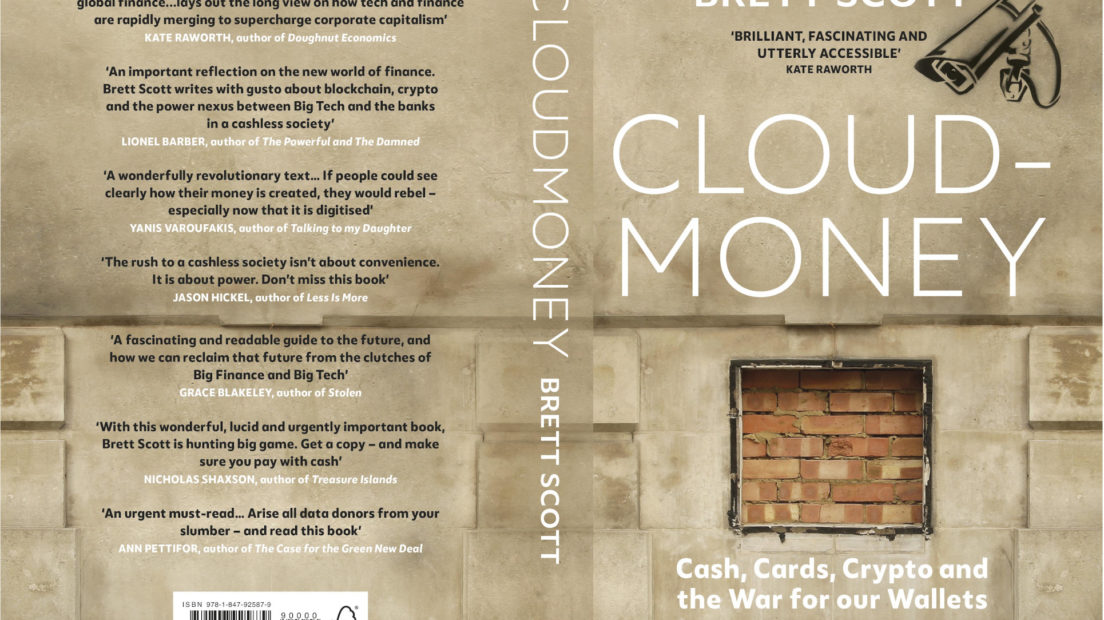The move away from physical cash towards digital payments system is often presented as organic – as a ‘bottom up’ change, driven by the decisions of ordinary people.
But this is only half the story.
A closer look at this transition reveals a huge amount of evidence pointing to a ‘top down’ push against cash from governments, large financial institutions, payments providers and tech companies.
Cash stands in the way of big finance and big tech, and that’s why it’s being sidelined.
In his new book, Cloudmoney: Cash, Cards, Crypto and the War for our Wallets, Brett Scott pushes this argument further: If we zoom out and look at the big picture, the decline of cash has very little to do with individual people’s desires, but is instead a direct result of the automation drive within corporate capitalism, the latest iteration of which involves the fusion of big finance and big tech. Cash jams this integration. As a result, even when people prefer cash, they will find themselves coerced away from it.
Watch back the event:
This video is embedded with YouTube’s ‘privacy-enhanced mode’ enabled although it is still possible that if you play this video it may add cookies. Read our Privacy policy and Digital best practice for more on how we use digital tools and data.
In conversation with Marloes Nicholls from the Finance Innovation Lab, Brett Scott addressed some key questions posed by his book, including:
- What can we do?
- What might be the political and economic consequences of ‘the privatisation of money’ and the impossibility of exit from the financial system?
- Are proposed digital alternatives to cash, such as Central Bank Digital Currencies, really alternatives? And what about crypto currencies?
- Can a slow, physical form of money survive in the face of the accelerating tech-finance vortex?
